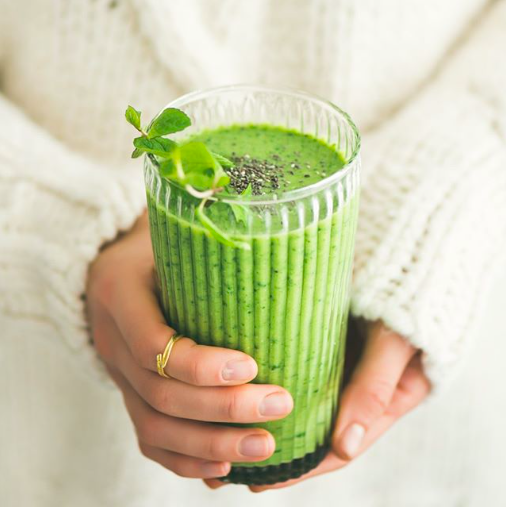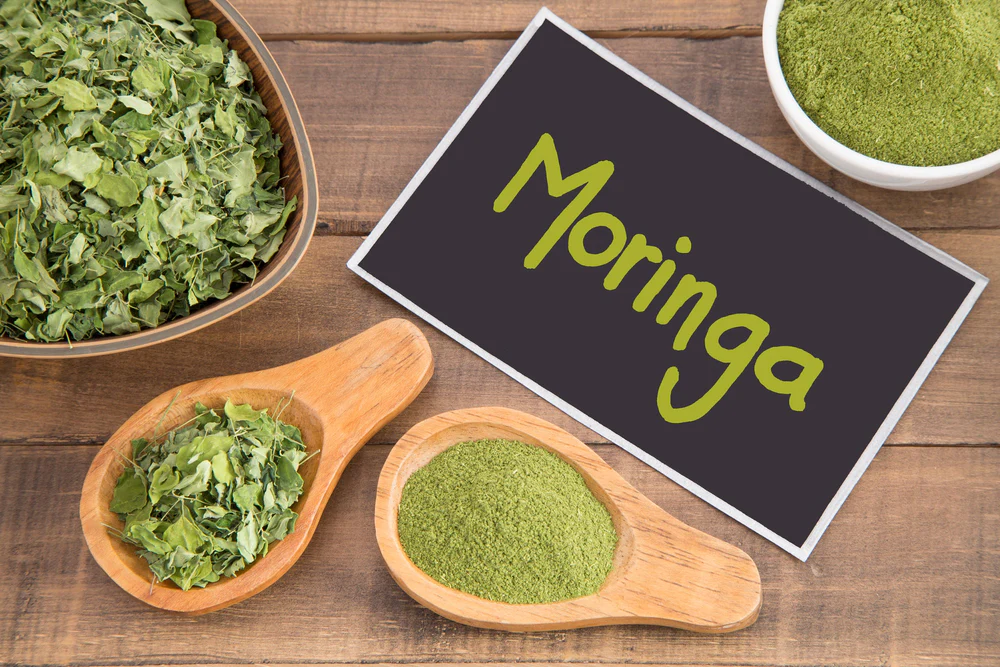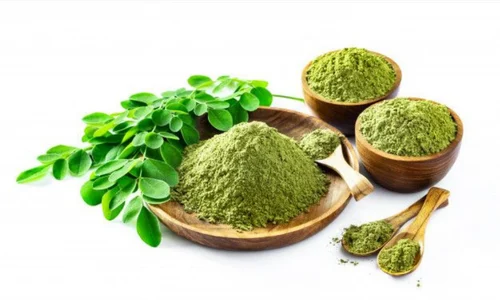Introduction to Organic Moringa Powder
Moringa Oleifera, commonly known as Moringa, is a miracle tree lauded for its nutrient-rich profile and myriad health benefits. Organic Moringa powder, derived from the dried leaves of the Moringa tree, stands out as a superfood in the world of health and nutrition. This green powder is not just any plant-based protein; it’s a treasure trove of vitamins, minerals, antioxidants, and amino acids, making it a powerful supplement for anyone looking to boost their nutritional intake.
Table of Contents
Nutritional Profile of Moringa Powder
1. Protein
- Moringa powder is a rare plant-based source of complete protein, containing all nine essential amino acids that the body cannot produce on its own. It typically offers around 25-30 grams of protein per 100 grams of powder, making it a fantastic supplement for vegetarians, vegans, and anyone looking to boost their protein intake.
2. Vitamins
- Vitamin A: Essential for healthy vision, immune function, and skin health. Moringa powder provides a significant amount of vitamin A.
- Vitamin C: Known for its antioxidant properties and its role in collagen production, immune function, and as an aid in absorbing iron. Moringa is high in vitamin C, with one serving providing more than 7 times the amount found in oranges.
- Vitamin E: An antioxidant that helps protect cells from oxidative stress.
3. Minerals
- Calcium: Moringa powder contains more calcium per gram than milk, aiding in the development and maintenance of strong bones and teeth.
- Iron: It’s particularly high in iron, which is crucial for the formation of hemoglobin and oxygen transport in the body.
- Potassium: Important for muscle function, nerve signals, and fluid balance, Moringa powder offers significant potassium content, more than that of bananas.
- Magnesium: Essential for muscle and nerve function, blood glucose control, and bone health.
4. Antioxidants
Moringa powder is rich in antioxidants, such as quercetin, chlorogenic acid, and beta-carotene, which combat free radicals in the body, potentially reducing inflammation and the risk of chronic diseases like heart disease and diabetes.
5. Fiber
- It also provides a good amount of dietary fiber, which helps in maintaining a healthy digestive system, contributing to satiety, and aiding in weight management.
6. Amino Acids
- Beyond the essential amino acids, Moringa powder contains other beneficial amino acids that support various bodily functions, including energy production and muscle repair.
7. Other Compounds
- Moringa powder contains various phytonutrients and plant compounds that have anti-inflammatory properties and may contribute to improved health, including reducing blood sugar and cholesterol levels.
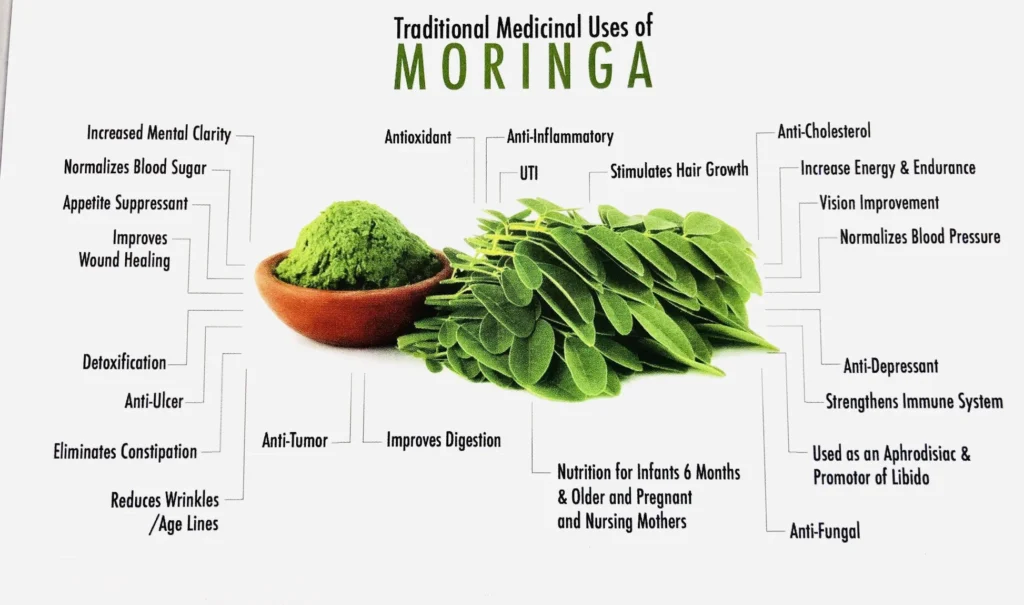
Benefits of Moringa Powder for Health
1. Boosts Energy Levels
Moringa powder is rich in iron and vitamin A, nutrients that are essential for the metabolism of energy in our bodies and help combat fatigue and tiredness. Unlike energy drinks that offer a quick, sugar-induced energy spike, Moringa provides a natural, steady source of energy.
2. Supports Muscle Growth
With its high protein content, Moringa powder is an excellent supplement for muscle growth and repair. The presence of all nine essential amino acids makes it a complete protein, a rarity in the plant kingdom, beneficial for athletes, bodybuilders, and anyone looking to increase muscle mass.
3. Enhances Immune Function
Rich in vitamin C and other antioxidants, Moringa powder strengthens the immune system. Antioxidants help to neutralize harmful free radicals in the body, reducing inflammation and enhancing the body’s resistance to infections and diseases.
4. Aids in Weight Management
The high fiber content in Moringa powder can help you feel fuller for longer periods, reducing the urge to snack and assisting in weight management. Its beneficial compounds also aid in reducing fat accumulation in the body.
5. Improves Digestive Health
Moringa powder is a good source of fiber, which is crucial for maintaining a healthy digestive system. It helps in regulating bowel movements and can alleviate constipation, bloating, and other digestive issues.
6. Regulates Blood Sugar Levels
Several studies have shown that Moringa powder can help in regulating blood sugar levels, making it beneficial for people with diabetes. Its compounds, such as isothiocyanates, have been found to assist in the reduction of blood sugar.
7. Lowers Blood Pressure and Improves Heart Health
Moringa powder contains isothiocyanates and niaziminin, compounds that have been linked to reduced blood pressure. Additionally, its high antioxidant content can help prevent plaque formation in the arteries, reducing the risk of heart disease.
8. Promotes Healthy Skin and Hair
The high levels of vitamins A and E in Moringa powder support skin and hair health. Vitamin A is vital for healthy, radiant skin, while vitamin E protects against skin damage and promotes hair growth and scalp health.
9. Anti-inflammatory Effects
Chronic inflammation is associated with many health conditions, including heart disease, cancer, and type 2 diabetes. Moringa powder has anti-inflammatory properties, thanks to its isothiocyanates, which can help combat inflammation at the cellular level.
10. Enhances Brain Health
Moringa is believed to have neuroenhancer and antioxidant properties. It supports brain health, enhances cognitive function, and can even provide mood-boosting benefits due to its high magnesium and vitamin E content.
How to Incorporate Moringa Powder into Your Diet
1. Smoothies and Juices
One of the easiest ways to include Moringa powder in your diet is by adding it to smoothies and juices. Its mild flavor pairs well with both fruits and vegetables. Try blending a teaspoon of Moringa powder with your favorite smoothie ingredients, such as bananas, berries, spinach, and almond milk, for a nutritious boost.
2. Teas and Lattes
Moringa powder can be used to make a healthy tea or latte. Simply mix a teaspoon of Moringa powder into a cup of hot water for a simple tea, or blend it with warm milk (dairy or plant-based), honey, and a dash of cinnamon for a comforting Moringa latte.
3. Soups and Stews
Adding Moringa powder to soups and stews is a great way to enrich your meals with its beneficial nutrients. Stir in a teaspoon or two into your pot of soup or stew, allowing the flavors to meld. It’s especially good in lentil soups, vegetable broths, and stews.
4. Baking
Moringa powder can be incorporated into baked goods such as bread, muffins, and pancakes. Just add a tablespoon of Moringa powder to the flour mixture before baking. This not only boosts the nutritional content but also gives your baked goods a vibrant green hue.
5. Salad Dressings
Create a nutritious salad dressing by whisking together olive oil, lemon juice, a bit of honey, salt, pepper, and a teaspoon of Moringa powder. This dressing can be drizzled over fresh salads or used as a marinade for vegetables before roasting.
6. Yogurt and Breakfast Bowls
Mix Moringa powder into your morning yogurt or sprinkle it over cereal and oatmeal bowls. It pairs well with fruits and nuts, adding a nutritional kick to your first meal of the day.
7. Energy Bars and Balls
For a quick, energy-boosting snack, incorporate Moringa powder into homemade energy bars and balls. Combine it with ingredients like dates, nuts, oats, and honey, then roll into balls or press into bars for a portable snack.
8. Pasta and Pizza Sauces
Stir a bit of Moringa powder into your pasta sauces or pizza sauce recipes. It adds nutrients without altering the taste significantly, making it an easy addition to family meals.
9. Sprinkled Over Meals
Simply sprinkling Moringa powder over your dishes can be the easiest way to use it. Add it to salads, rice, pasta, or any other dish for a quick nutrient boost.
10. In Homemade Condiments
You can also mix Moringa powder into homemade condiments like ketchup, mayo, or mustard for an extra healthful punch.

Organic Vs. Non-Organic Moringa Powder
Organic Moringa Powder
1. Cultivation Practices: Organic Moringa powder is produced from trees grown without the use of synthetic pesticides, herbicides, or fertilizers. Organic farming practices emphasize the use of natural substances and physical, mechanical, or biologically based farming methods to the fullest extent possible.
2. Chemical Use: Because organic Moringa is grown without synthetic chemicals, it’s less likely to contain residues of harmful pesticides and fertilizers. This can be particularly important for individuals concerned about the long-term health effects of these substances.
3. Environmental Impact: Organic farming practices are designed to reduce pollution and conserve water and soil quality. Choosing organic Moringa powder supports these sustainable practices, contributing to the preservation of natural resources and biodiversity.
4. Health Implications: While both organic and non-organic Moringa powders are nutritious, opting for organic Moringa may reduce your exposure to potentially harmful chemicals. For those with allergies or sensitivities, organic Moringa powder might be a safer choice.
5. Cost: Organic Moringa powder often comes at a higher price point due to the more labor-intensive agricultural practices and the costs associated with organic certification.
Non-Organic Moringa Powder
1. Cultivation Practices: Non-organic Moringa is grown using conventional farming practices, which may include the use of synthetic pesticides, herbicides, and fertilizers to enhance growth and prevent disease.
2. Chemical Use: There is a higher likelihood that non-organic Moringa powder contains residues of synthetic chemicals used during cultivation. The levels of these residues are typically regulated by governmental food safety authorities.
3. Environmental Impact: Conventional farming practices can lead to environmental concerns such as biodiversity loss, soil degradation, and water pollution due to the use of synthetic chemicals and unsustainable farming methods.
4. Health Implications: For most people, the pesticide residues found in non-organic Moringa powder are within safe limits. However, those concerned about chemical exposure might prefer organic options.
5. Cost: Non-organic Moringa powder is generally less expensive than its organic counterpart, making it more accessible to a wider range of consumers.
Making Your Choice
The decision between organic and non-organic Moringa powder ultimately depends on your personal priorities, including health concerns, environmental impact, and budget considerations. If reducing exposure to synthetic chemicals and supporting sustainable farming practices are important to you, organic Moringa powder may be the right choice. If cost and availability are your primary concerns, non-organic Moringa powder still offers the significant health benefits associated with its nutrient profile. Regardless of your choice, adding Moringa powder to your diet can contribute to improved nutrition and overall well-being.
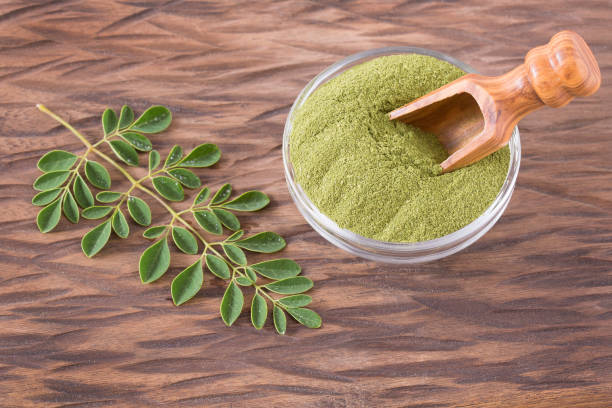
Choosing the Right Moringa Powder
1. Source
- Origin: Look for Moringa powder sourced from areas where the Moringa tree naturally thrives, such as India, Africa, or certain parts of Asia. The climate and soil conditions in these regions contribute to the nutritional quality of Moringa leaves.
- Cultivation Practices: Consider whether the Moringa is grown organically or using conventional farming methods. Organic Moringa, grown without synthetic pesticides and fertilizers, might be preferable for those looking to minimize chemical exposure.
2. Processing Method
- Drying Process: The method used to dry Moringa leaves can significantly affect the nutrient content. Opt for Moringa powder made from leaves that are dried at low temperatures to preserve the maximum amount of nutrients, especially heat-sensitive vitamins and antioxidants.
- Grinding: The leaves should be finely ground to a smooth powder, which indicates a quality processing method. Coarser powders may be less potent and harder to incorporate into your diet.
3. Purity
- Ingredients: Check the label for any additives, fillers, or preservatives. The best Moringa powder is pure, containing only 100% Moringa leaves with no additional ingredients.
- Certifications: Look for certifications that can attest to the product’s purity and quality, such as USDA Organic, Non-GMO Project Verified, or others relevant to your region.
4. Packaging
- Packaging Material: Moringa powder should be packaged in airtight, opaque containers to protect it from light, air, and moisture, which can degrade its quality over time.
- Seal: Ensure the packaging is properly sealed to maintain freshness. Resealable bags or containers with tight-fitting lids are ideal.
5. Brand Reputation
- Reviews: Check customer reviews and testimonials to gauge the satisfaction of others who have used the product.
- Company Transparency: A reputable brand will be transparent about their sourcing, processing methods, and testing practices. They may also provide information about their commitment to sustainability and ethical practices.
6. Lab Testing
- Purity Testing: Some brands go the extra mile to test their products for heavy metals, bacteria, and other contaminants. Look for products that have undergone third-party testing and provide accessible test results.
7. Price
While price shouldn’t be the sole factor in your decision, it can indicate quality to some extent. Extremely low prices may reflect inferior quality or unethical production methods, whereas very high prices are not a guarantee of superior quality. Aim for a product that offers a good balance between quality and affordability.
Source to Get Organic Moringa Leaf Powder Capsules
Conclusion
Organic Moringa powder is a versatile, nutrient-rich superfood that offers numerous health benefits. Whether you’re looking to boost your protein intake, enhance your immune system, or simply add more nutrients to your diet, Moringa powder is an excellent choice.
FAQs
- What makes Moringa powder a complete protein?
- Can Moringa powder help with weight loss?
- How does Moringa powder support immune function?
- Are there any side effects of taking Moringa powder?
- How can I ensure I’m buying high-quality Moringa powder?
